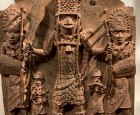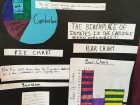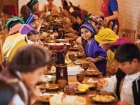Enquiries
A key cornerstone of history is historical enquiry. Quality history provision has historical enquiry at its heart. Through historical enquiry children can be shown how to ask questions, select and evaluate evidence and to make judgments about the past. It can also be a vital way of showing them that there is often more than one side to a story and that history is multi-perspective. Historical enquiry is all about asking questions or hypothesising about the past that we hope the evidence will help us to answer, but getting the enquiry question right is not always easy. In this section you will find resources and guidance that will help you to plan challenging enquiries for your children that will help them to develop as historians.
-

Curriculum plan: Anglo-Saxons and Vikings
Multipage ArticleClick to view -

Curriculum plan: Stone Age to Iron Age
Multipage ArticleClick to view -

Curriculum plan: Ancient Greece
Multipage ArticleClick to view -

HA Enquiry Toolkit
ArticleClick to view -

Teaching black British history through local archives
ArticleClick to view -

Benin: exploring an African empire at Key Stage 2
ArticleClick to view -

The Coronation of King Charles III
ArticleClick to view -

Scheme of work: The history of the ancient Olympic Games
ArticleClick to view -

Changes in an aspect of social history from 1945 to 2000: youth culture
ArticleClick to view -

Film: What's the wisdom on... Enquiry questions Part 2 (Primary)
ArticleClick to view -

Film: What's the wisdom on... Enquiry questions Part 1 (Primary)
ArticleClick to view -

Teaching the Romans in Britain: a study focusing on Hadrian’s Wall
ArticleClick to view -

Making the most of a census
ArticleClick to view -

Scheme of Work: Comparing Ancient Civilisations
ArticleClick to view -

The history of medicine – warts and all – for Key Stage 2
ArticleClick to view -

Women in parliament since 1918
ArticleClick to view -

To boldly go: exploring the explorers
ArticleClick to view -

Strange goings-on: exploring the benefits of learning history through outdoor pedagogy
ArticleClick to view -

Scheme of Work: The Blitz: all we need to know about World War II?
ArticleClick to view -

For whose God, King and country? Seeing the First World War through South Asian eyes
ArticleClick to view

